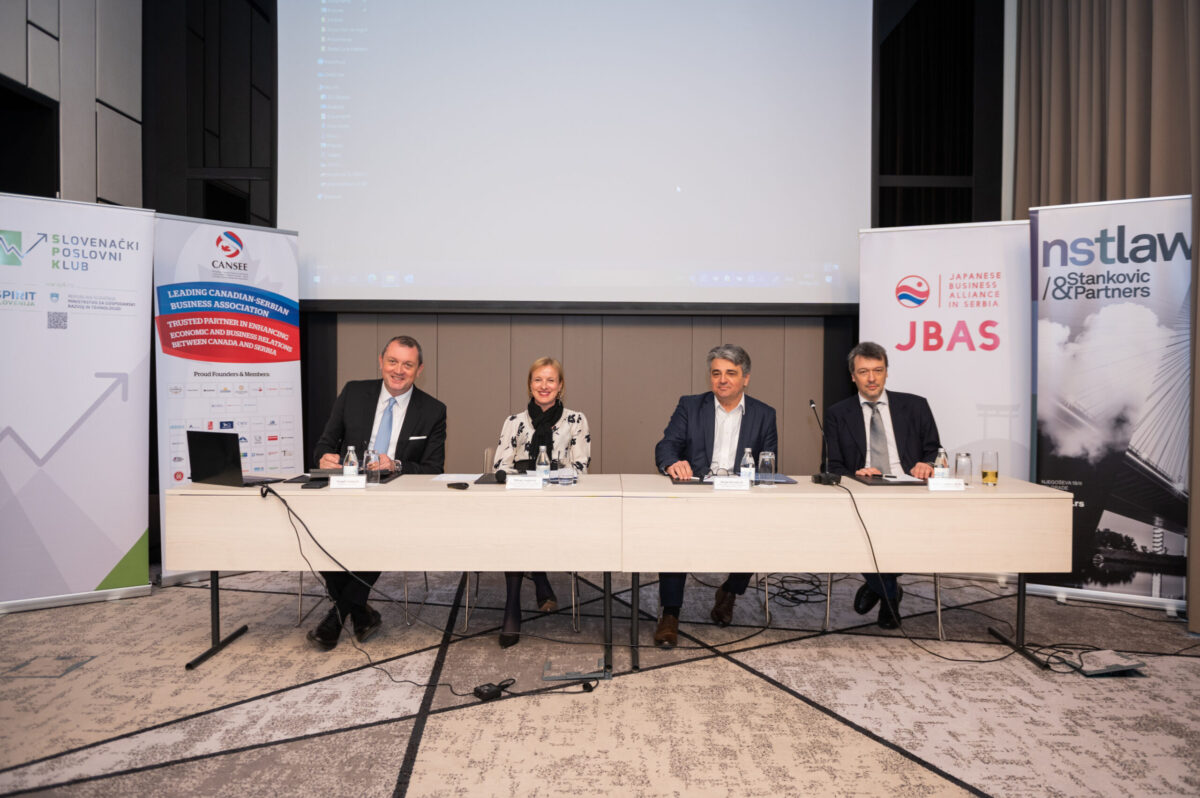Private sector will have access to data hold by public institutions
On April 8th, 2022, a panel discussion on digitalization and protection of personal data was all organized by NSTLAW, the Japanese Business Alliance, with the support of the CANSEE Canadian-Serbian Business Association and the Slovenian Business Club.

Panelists were: Milena Argirović CEO Takeda, Dejan Kovačević, Digital Health Advisor at the Government of the Republic of Serbia, Office of the Prime Minister, professor Andrej Savin PhD, Director of the Copenhagen Business School and Nenad Stankovic NSTLAW Senior Partner. Milena Argirović, in her opening word emphasized the importance of digitalization in the modern world.
Nenad Stanković, addressed the audience, presenting the importance of compliance with regulations governing the protection of personal data and the complexity of regulations in the field of digitalization.
Mr. Dejan Kovačević, presented the priorities of digitalization in the field of health as well as key challenges that need to be overcome in order to successfully implement digitalization in the healthcare sector. As one of the special objectives, Mr. Kovačević pointed out the establishment of a secure and integrated information and communication infrastructure and electronic services to provide better and more efficient health care. Additionally, Mr. Dejan Kovačević presented further activities related to the adoption of the Action Plan for Digitalization of Health, while he pointed out that the Program for Digitalization of Health has already been adopted for the period 2022-2026. It was also pointed out that it is necessary to amend about seven laws and 30 regulations in order to harmonize them with the regulations on the protection of personal data.

Professor Savin, referred to the application of the GDPR, and the difference in the application of digitalization in the public sector and for business purposes. He especially stressed dilemmas and issues relating to the possibility that the private sector has access to data maintained by public institutions, making a connection between data protection and competition law.
The panel discussion was attended by more than 50 participants, representatives of the pharmaceutical, construction and insurance companies as well as representatives of the fast products sector.
Participants had the opportunity to actively participate in the discussion, and the conclusion of the panel is that the progress in important field of digitalization and protection of personal data should be developed in future, notwithstanding the complex and non-unified legal and practice.
We would like to thank everyone for their active participation and contribution making the panel discussion relevant to all.